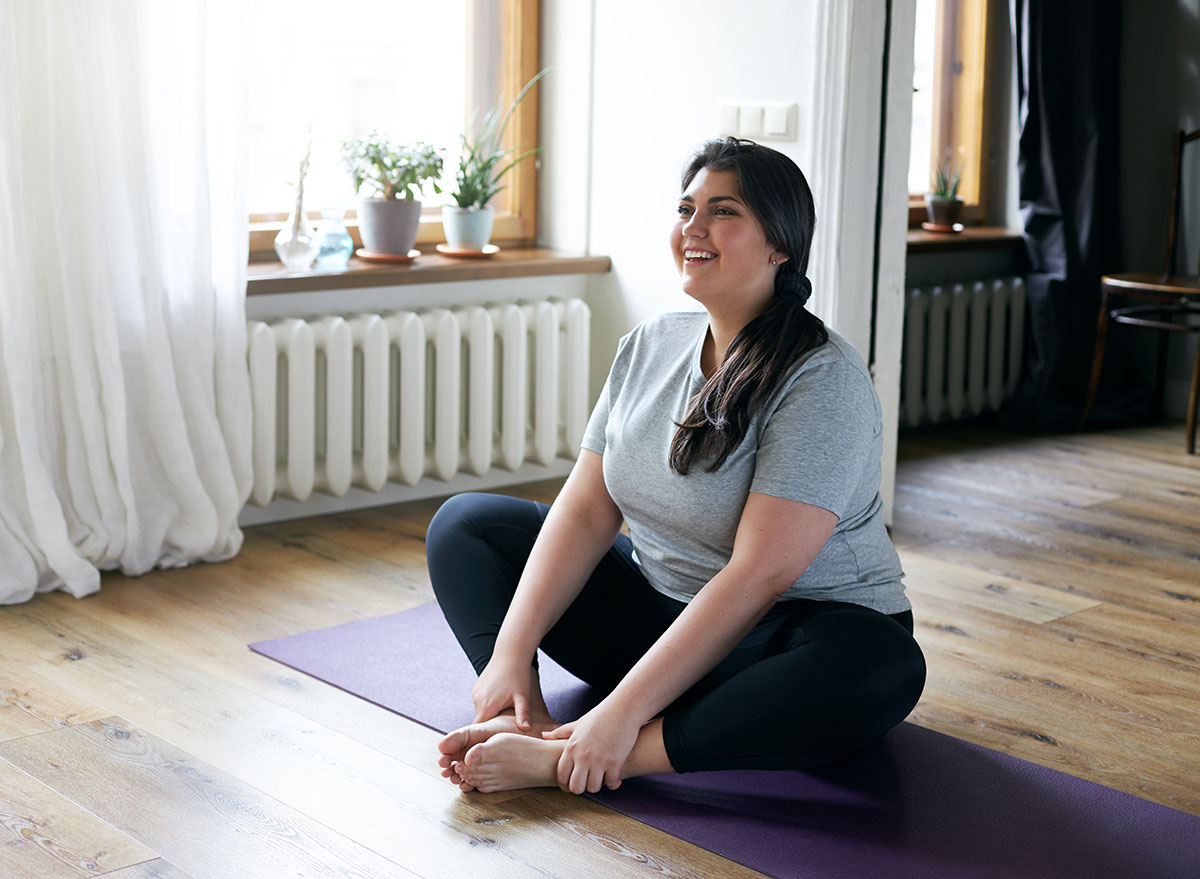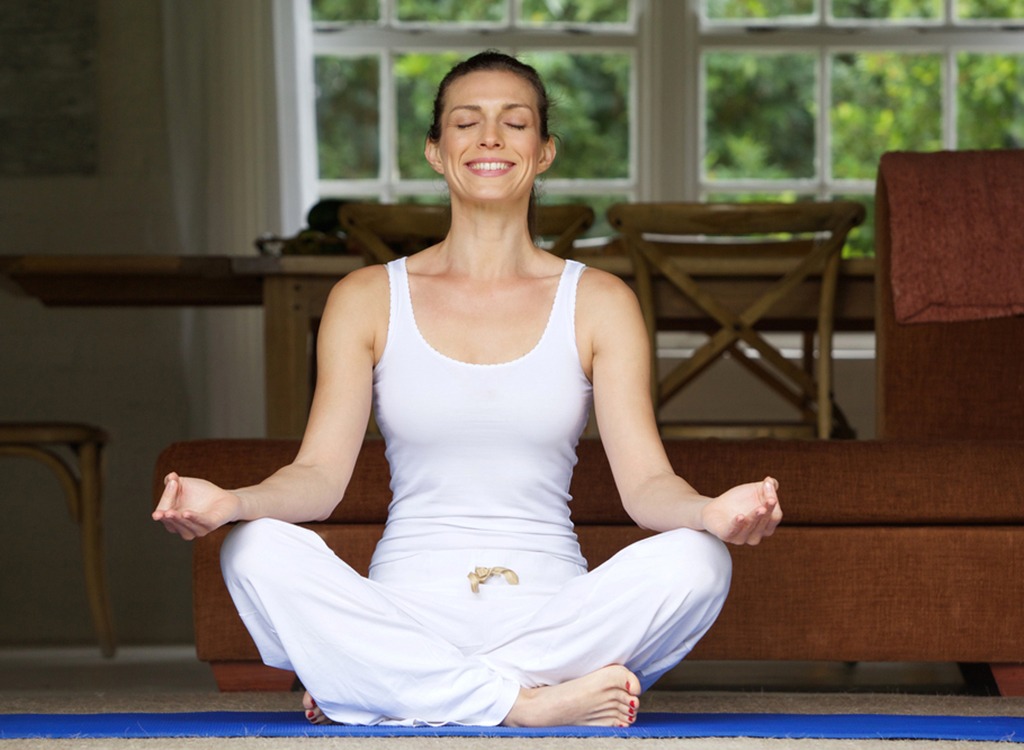One Incredible Side Effect of Doing Yoga, Says New Study

Believe it or not, there are some negative side effects associated with performing yoga, which at least one study, published in the journal Complementary Therapies in Medicine, said include pain and soreness, along with various muscles injuries and even fatigue. But according to a new study published in the latest edition of Stress & Health, the authors highlight the many benefits of performing yoga on a regular basis, including what they suggest is the single biggest—and most immediate—positive side effect of performing the mindful exercise that millions upon millions of people swear by. Read on to learn more about the study’s findings, and for what it means for you. And for more breakthroughs from the front lines of scientific research, check out The Single Worst Way to Sit for Your Body, Says New Research.
Understanding Yoga, the Stress-Killer

It’s well known that yoga is a particularly effective exercise at relieving stress. The purpose of the new study, conducted by researchers at the University of Connecticut and published in Stress & Health, sought to figure out how. The researchers focused on five potential “psychosocial” mechanisms commonly associated with stress relief in yoga—”increased mindfulness, interoceptive awareness, spiritual well‐being, self‐compassion and self‐control”—to see if any of them may actually “explain yoga’s impact on stress.”
To arrive at their conclusion, they monitored 42 volunteers who participated in a 12-week Kripalu yoga program for stress management, monitoring the above mechanisms and gauging how the they reacted to different types of stress: “perceived stress” and “stress reactivity,” the latter defined as feeling agitated or having difficulty relaxing.
The Biggest Benefit of Yoga

According to the study, the participants reported enhanced feelings for practically all of the above mechanisms believed to be associated with stress relief. However, the one that had the biggest effect on stress reduction was “interoceptive awareness”—or the ability to identify, understand, and respond to the patterns of internal signals and sensations in your body.
“Interoceptive awareness,” explains the study, “[is] the awareness of inner body sensations, including receiving, accessing and appraising signals of the body’s internal states, [and] has been suggested as a related potential mechanism of action for body‐based mindfulness interventions, particularly those with a strong physical basis such as yoga. Improving awareness of one’s internal states may provide opportunities to engage in mind-body skills that allow yoga practitioners to consciously intervene in their own stress reduction.”
In an article breaking down the study, Psychology Today observed: “So, yoga’s most immediate and largest benefit appears to be increased awareness and attention to bodily sensations and internal states.”
And if you swear by your own yoga practice, make sure you’re stocking your fridge with The Best Ever Foods for Yoga!
Not All Yoga Is Created Equal

The study found that yoga was effective overall at reduced both perceived and reactive stress, and that yoga’s biggest benefit associated with this drop in stress is an enhanced state of interoceptive awareness. However, it’s important to note the type of yoga being tested here.
Kripalu yoga, specifically, puts an enormous focus on self-compassion and targets reactive stress—or feelings of agitation. “Future research is needed to examine other yoga practices (e.g., Bikram yoga, restorative yoga), to determine whether they are more effective in reducing perceived stress or stress reactivity,” observes Psychology Today.
What It Means for You

A number of studies have shown that yoga is helpful in reducing stress and anxiety, and improving not only your mood but also your sense of well-being. Studies have also shown that yoga is effective at helping combat depression. This new study focused more on how the technique of Kripalu yoga targets both your perceived stress and your reactive stress.
“Our results suggest that Kripalu yoga may have beneficial effects for positive psychological resources such as interoceptive awareness, mindfulness, spiritual well-being and self-compassion,” concludes the study. “Experiences of stress reactivity appear to decline significantly over the course of a mindful yoga intervention, suggesting that Kripalu yoga may be especially beneficial for individuals experiencing marked arousal and overreactions to stress exposure.”
So if stress relief is your main goal in yoga, you’d do worse than signing up for Kripalu. (Bonus: It’s a great yoga method for beginners!) And for more news from the front lines of science, make sure you’re aware of The One Major Side Effect of Going on a 1-Hour Walk, According to New Research.








